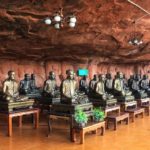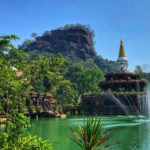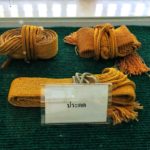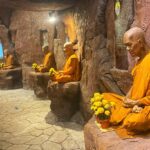The Bulletproof Thai Monk from Sakon Nakhon
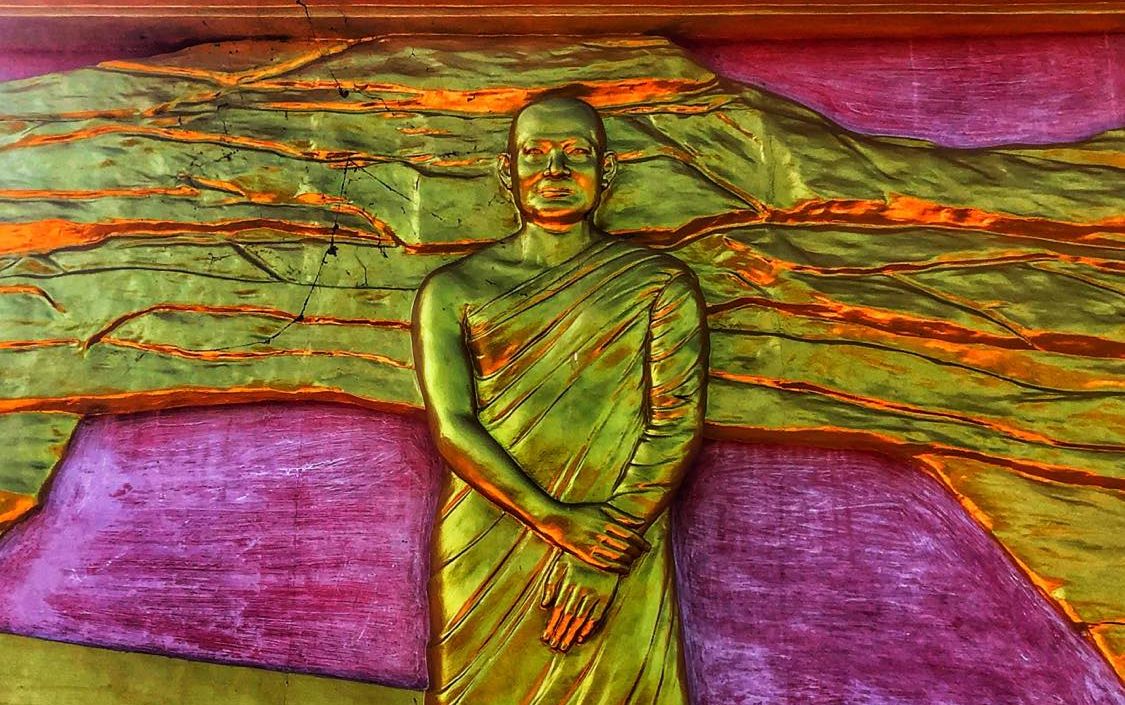
Sakon Nakhon has been the birthplace and/or wandering grounds for many famous monks in Thailand, who found the mountains and forests of the province especially suitable for meditation. One notable Thai monk who is a little lesser known today than he was 50 years ago is Phra Ajahn Wan Uttamo (พระอาจารย์วัน อุตตโม), who was born in the Sawang Daen Din province of Sakon Nakhon in 1922.
Ajahn Wan became famous for an event that occurred in 1970, when a communist movement was growing in Sakon Nakhon, especially in the Phu Phan mountain areas where insurgents would hide (Read more about this in our Sakon Nakhon history). During this time, the Thai military had warned people about walking around the woods at night, and thus be mistaken for communist terrorists.
In May of 1970, Ajahn Wan was attending a wedding ceremony in the mountainous Song Dao district, which is densely forested and just south of Sawang Daen Din. He and 7 novice monks were there to bless the new husband and wife, as is the Thai custom.
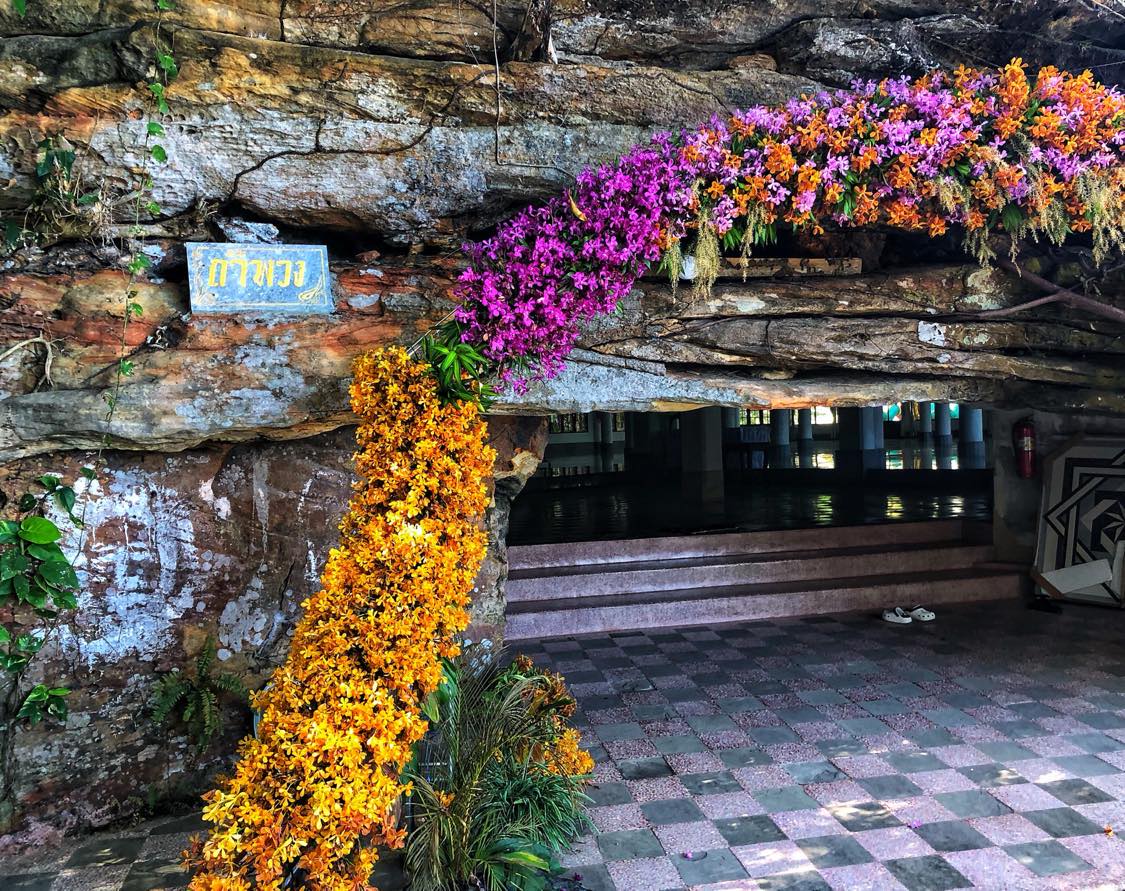
It was nighttime when they began walking back to their home at Wat Tham Aphai Damrongtham (วัดถํ้าอภัยดํารงธรรม), which at that time was just a cave on Phu Pha Lek mountain. They were using a flashlight to guide their way through the forests and rice fields when they encountered soldiers who thought they might be communist terrorists.
The soldiers shouted at them, “Stop!” But Ajahn Wan and the novice monks kept walking, not realizing the danger they were in. The soldiers soon released a hail of gunfire from M16 rifles and other firearms, attempting to kill them all. The monks walking beside Ajahn Wan hit the ground or scattered to hide behind trees, but Ajahn Wan just kept walking, as if nothing was happening.
The firing finally stopped and the novice monks caught up with Ajahn Wan, amazed that not a bullet had grazed him. A novice explained that he had seen one bullet that seemed to hit something invisible and then drop into red embers several meters from Ajahn Wan.
At dawn the soldiers cleared the forested area and were surprised not to have found a single body. They could see footsteps going up a hill, so they followed the trail until finding Ajahn Wan and the other monks in their cave.
The Thai soldiers were shocked at seeing the monks, and horrified at what they almost had done: that is, assassinate a group of monks. They bowed down in apology and quickly fled the cave.
The shooting incident was reported to commanders until it eventually reached the Supreme Commander, who appointed General Boonserm Ayuwat (พลเอกบุญเสริม อายุวัฒน์), Deputy Commander-in-Chief of the Royal Thai Armed Forces to visit the cave and make a formal apology.
When the General arrived at the cave, he found that Ajahn Wan had already laid out a mat and cool water for him (even though the general had notified no one that he would be coming). This shocked the general and confirmed to him that this Thai monk indeed had supernatural ability.
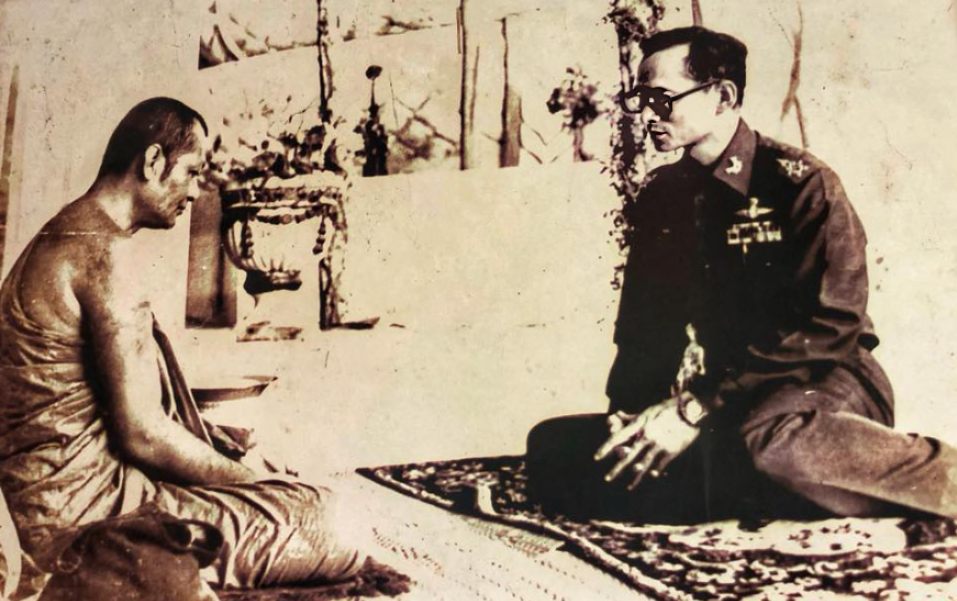
The cave residence of Ajahn Wan and area around the cave is now known as Wat Tham Aphai Damrong Tham (Wat Tham Pung), and can be visited by the public. It is not far from the Phu Pha Lek National Park in the Song Dao (ซ่องดาว) district of Sakon Nakhon. Song Dao once went by the name Song Dao Chon (ซ่องดาวโจร), which could be translated as the “Den of Thieves”. This was when the densely forested area was a hideaway for thieves who were robbing travelers between Kalasin and Udon Thani. The Thai authorities eventually were able to rid the area of thieves and the name was changed to just Song Dao, which means “Shining Star”, a place lit not only be the heavens but the shining wisdom of Ajahn Wan Uttamo.
One final note, the Isaan communists from the 1960s and 1970s have all been forgiven, with the King of Thailand granting an audience to a group of ex-communists several years ago in Sakon Nakhon, saying that they all had something important to contribute to Thailand’s development.
If you enjoyed this story of a monk with supernatural powers, read about the flying Thai monk who meditated on a cloud!
- The 1st English Dhamma Talk Project, Sakon Nakhon Thailand - July 8, 2025
- Affirmations in Buddhism & Thailand - June 7, 2025
- Speak Thai Naturally Without the Gymnastics - April 20, 2025

